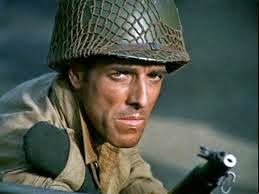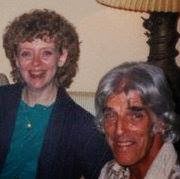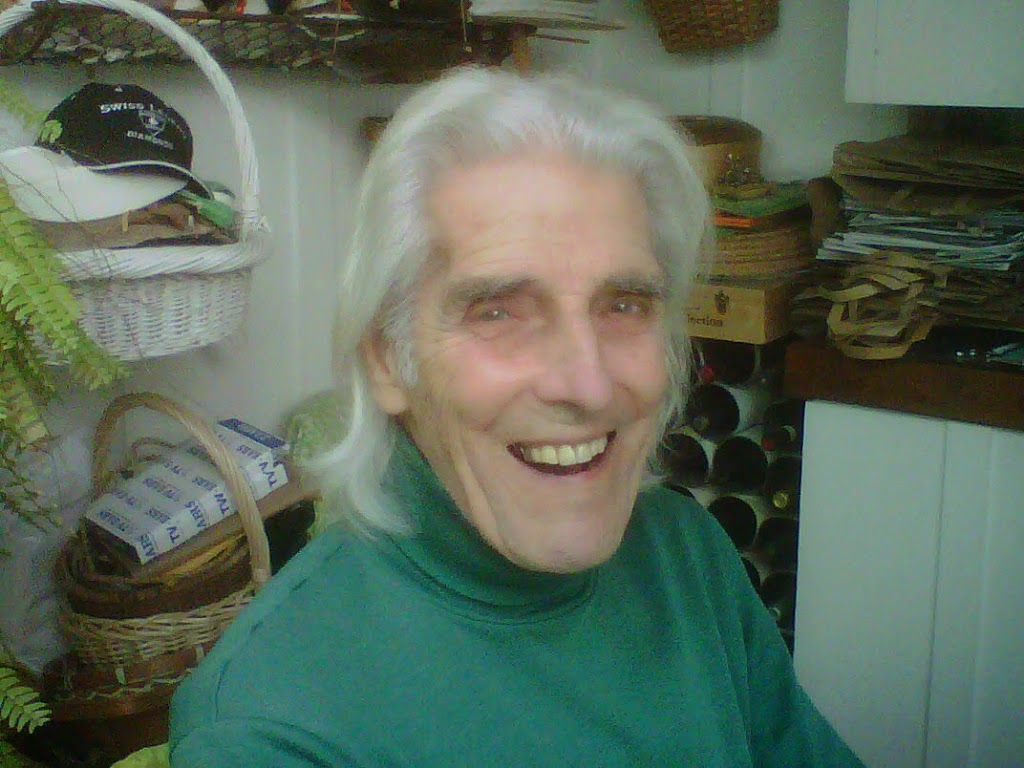"All My Friends Are Dead"
Dec 04, 2014 by Victoria Noe, in Combat
, Friend Grief
, Friendship
, Grief
, grieving
, Pierre Jalbert
 |
| Pierre on "Combat" |
It seemed odd to many that one of our favorite TV shows was Combat! It ran from 1962-67, and featured a squad of American soldiers in France after the D-Day invasion. We watched the show because we thought the actors were cute. And my favorite was Pierre Jalbert.
Pierre was my “type”: under six feet tall, dark, lean. The French accent didn’t hurt. It was a great, long-distance fantasy…until we met.
 |
| The night we met |
Pierre’s life was nothing short of amazing: Canadian ski champion, Olympic captain, friend of movie stars, ski instructor, sound editor, actor, writer. He built his house in Beverly Glen and was a talented wood carver. He was obsessed with the life of the Marquis de Lafayette. “He was 19 when he fought in the Revolutionary War!” he’d tell me again and again.
He told me because I visited him a few times in recent years to record the stories of his life. We’d sit in the dining room of his beautiful home, scanning old photos, taping our conversations.
 |
| During one of my visits |
I wrote last week that I learned a lot from him in his last year. I didn’t just learn about Lafayette, or why he was brought in to help with The Godfather (Pierre’s responsible for the iconic baptism/mob hit sequence at the end of the movie).
I learned that he gave full credit to his friends for everything that happened to him in his life. A new one would appear at a crucial moment, offering him an opportunity that would change his life: the actress who invited him to Paris, the businessman who sponsored his immigration to the US. “I wouldn’t be where I am today without my friends.”
I learned that he missed them terribly. “All my friends are dead,” he insisted, when we first sat down to record his stories. “Not all of us,” I countered. His stories about his friends were told without a trace of envy or disapproval. He loved them for who they were, and though he didn’t always understand or condone their behavior, he loved them nonetheless.
I learned that with every setback – rheumatic fever, the shattered leg that left him in constant pain for over 60 years, deportation when he failed to secure a work visa – he bounced back. He had a resilience that was remarkable. “Weren’t you depressed when you couldn’t ski in the Olympics?” “Sure,” he agreed. “For a week.” Then, Norma Shearer invited him to Paris, and he moved on to the next adventure.
I learned that it’s possible to live your life without regrets. When he insisted he had no regrets about his life, I was skeptical. I tried to bait him, frankly. Maybe it was Buddhism that gave him that peace. But just as he saw his friends impact his life, he saw each twist and turn as something ultimately better. Everything happened for a reason.
I feel like I learned a lot from Pierre. I still have my notes and my tapes. Next year I’ll transcribe them and put them into a coherent tale about one of the most remarkable men I’ve ever known.
I can hear his voice sometimes. If I close my eyes I can feel his hand in mine as we walked through the parking lot to lunch. When my car windshield is dirty, I think of him insisting I pull into the gas station in Santa Monica so he could clean it.
Finally, Pierre, I’m writing about you. Don’t give me that typically French shrug, as if you don’t care. I know better. So wherever you are, pour yourself a scotch on the rocks and settle back.
Allons-y.

